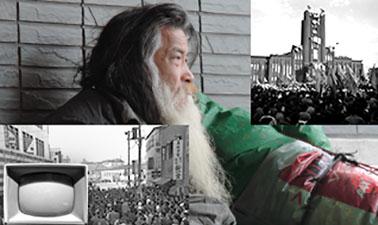- Level Foundation
- Course by The University of Tokyo
- Total students 1,501 enrolled
-
Offered by

About
The history of postwar Tokyo reveals an essential feature of the modern city, i.e. the city as a place of visualities. In postwar Tokyo, countless gazes fell upon others; gazes from and upon Americans and the Emperor, gazes going up skyscrapers or rushing aggressively through the cityscape, and gazes twining and wriggling among classes, genders, and ethnic groups in downtown Tokyo. In Part 2, we will focus on the geopolitics of these gazes in modern Tokyo. What kinds of gazes fell upon the war orphans, the poor, and the marginalized groups in Tokyo? How did students themselves, who represented the vast accumulation of knowledge in Tokyo, perform in front of these gazes? Moreover, how did cinema or television shows, as media for these gazes, implicate the whole city? In answering these questions, we will identify the geopolitics historically involved in the practice of "visualizing postwar Tokyo."
What you will learn
- 戦後東京における視線のダイナミックな交換の仕方を異なる視点から
- 可視化技術がどのように開発され、東京の人々に受け入れられたのか
- 貧困層と都市社会の周縁部に関する研究とその背景にある社会学的理論
- 学生の街としての東京の変貌
- 都市の「見える化」と日本の「戦後」
Auto Summary
Discover the transformative journey of Tokyo's postwar history in "Visualizing Postwar Tokyo, Part 2." This foundational course, offered by edX, delves into the critical technologies and key figures that played a significant role in shaping and visualizing the city after World War II. Ideal for those interested in personal development, this course provides a deep understanding of historical context through a unique lens. Whether you're a history enthusiast, a student of urban development, or someone keen on understanding technological impacts on society, this course is designed to cater to your interests. With flexible subscription options, including Professional and Starter plans, you can choose the learning path that best fits your schedule and professional goals. Start your journey today and visualize the evolution of one of the world's most vibrant cities.

Shunya Yoshimi


